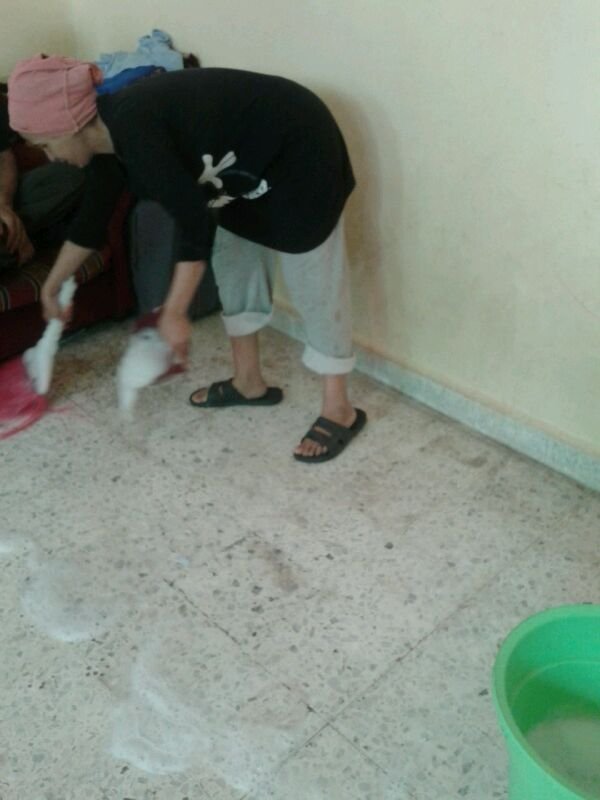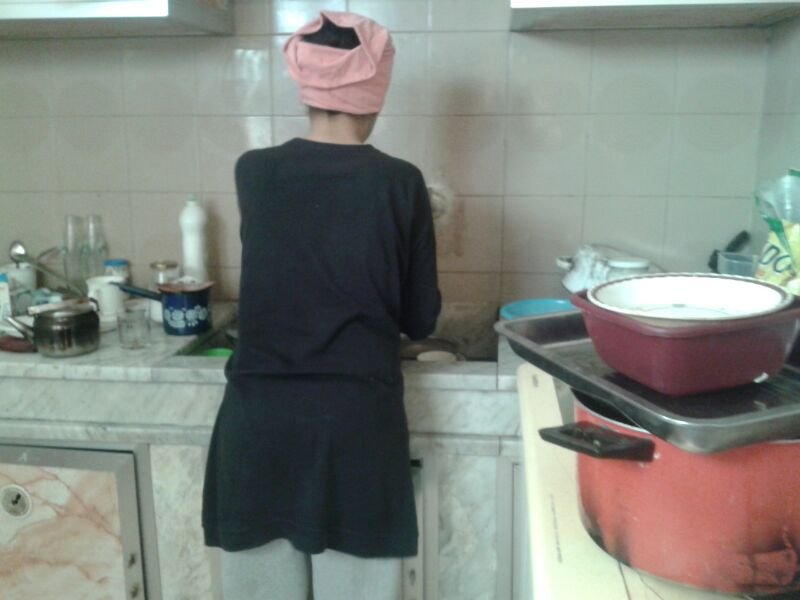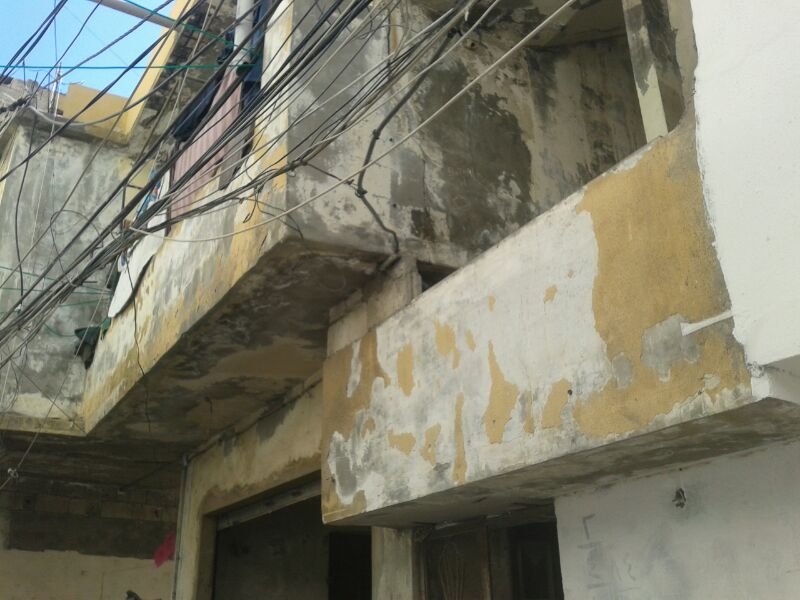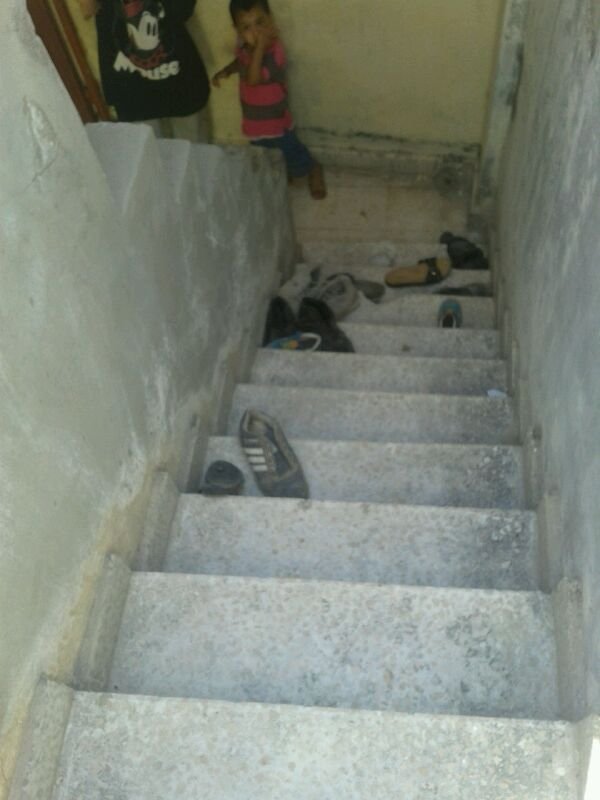By Hiba Hamzi | Program Coordinator
Background during and after the implementation of the project: Since the beginning of the Syrian crisis in 2011, the number of Palestinian refugees and Syrian refugees from Syria is continuously increasing. According to the last update conducted by the UNRWA on the 28th of March 2014, the number of Palestinian refugees from Syria reached 52,848 refugees distributed among the Palestinian refugee camps in Lebanon and in the gatherings. On the other hand, UNHCR declared in the last statistics update conducted during April 2014 that the number of Syrian refugees reached 1,040,322 refugees.
The Lebanese economy which is built on the services and tourism sector, don’t have the capacity to fulfill the needs of this increasing population, especially within the deteriorated economic conditions that is affected by the security situation in Lebanon, in the neighboring countries and in the Arab region in general. Thus, a huge part of these refugees rely on the aids and services provided by various service providers. Building on the above given, Naba’a planned to implement a participatory rapid assessment (PRA) to build a clear understanding about the main gaps and unmet WASH needs.
In addition, during the last three months Naba’a conducted an assessment, as we believe that in reference to the international human rights instruments, it reveals that the right to Water, Sanitation and Hygiene (WASH) services is ensured as a fundamental right for all humans to live in dignity.
Purpose of the Assessment done by Naba’a; Is to assess the level of knowledge that refugees have about appropriate WASH, specifically hygiene, practices and how many of them actually follow these practice, and to evaluate the impact of the receiving of the hygiene kits on the targeted 130 families and other families Through meetings and focus groups with different stakeholders including children , parents and local references, this will lead us to ;
- Discovering the WASH and Hygiene unsatisfied needs and priorities in terms of WASH and hygiene in Palestinian refugee camps and gatherings (especially among children, youth, women and persons with disability PWDs.
- Investing the main finding in addressing the main needs and priorities and to develop new proposals regarding these priorities.
As a conclusion of the assessment, PRS and SRS families have lost their shelters and been displaced and this is a fact while they did not lose yet their skills in taking care of their families assuring their hygienic wellbeing, as the families are knowledgeable regarding the positive and negative practices but they are not empowered to do it and they lack the needed items and resources, despite that the need for these items is not prioritized by them.
A Case Study of one beneficiary who received Hygiene Kit;
Name; Fawzia
Address: Ein el Helwe camp
Marital status: married
Nationality: Palestinian from Syria
Family members: She is a mother of 5: an 18-year-old son, a 16-year-old daughter, a 15-year-old son, a 5-year-old son enrolled in Naba’a kindergarten and a 3-year-old son.
Social situation: She is a displaced woman from Yarmouk Camp – Syria. Her house there was bombarded, which obliged her to leave with her children. In the beginning, she was moving from one area to another inside Syria, sheltering in relatively safe schools or gardens, or even being hosted by people she didn’t know. In the end, she had no other choice but fleeing to Lebanon and sheltering in Ein el Helwi camp, where she also moved from one house to another, trying to provide her daughter, who is a cancer patient, with as much comfort as possible.
According to the woman, her husband had illegally provided their house in Yarmouk with electricity, which is why he is currently wanted and hiding, not being able to flee with his family.
Economic situation: The family’s economic situation is quite bad. In fact, the mother needs to buy medicines for her sick daughter. They live in a rented house for only 200.000 LP per month, thanks to the house owner who took into consideration her daughter’s case. As for the 18-year-old son, he proved his seriousness and engagement in his job, and he now works for 15.000 LP per day. He walks to and from his work place so that he doesn’t lose 4.000 LP on transportation; he prefers to give them to his family.
Health situation: The daughter had brain cancer in 2009. She undertook a treatment and started to get better. However, due to her current living conditions, her situation is worsening. She also became a burden for her family, as the mother isn’t able to provide her with the treatment, and UNRWA doesn’t cover it either. The mother says: “our economic situation is very bad. My daughter is sick and her treatment costs 1800$. UNRWA ensure us a place in Hamshari hospital and pays 800$ for the tests, which is half the cost. This is all it does. I have to pay for the other half and for the treatment and medicines.”
In addition, due to the lack and contamination of water, and inability to buy detergents, the mother and children are now suffering from some skin diseases.
Accommodation conditions: The family lives in an apartment of one bedroom, one living room, two bathrooms and one kitchen. They are 3 families in this apartment for 200.000 LP per month. However, the shelter is humid and unhealthy; although Naba’a intervened and tried to fix it, but it still needs many improvements. The water tank for example is a 10-year-old iron open tank, where children throw garbage sometimes, polluting the already-scarce water.
The mother benefits from Naba’a distributions:
After visiting the family and getting to know their difficult socio-economic situation, Naba’a provided them with some services as follows:
- Shelter improvement: the family was enabled to improve shelter by painting the humid, black walls, ensuring water and electricity networks, adding water taps, and changing the glass of the dangerous broken windows for the children. The mother states: “We finally felt we were in a decent home, although it still needs some improvements. We absolutely need to change the water tank.”
- The family benefited from the hygiene and food kits distribution. The mother says: “we received the aid when we most needed it, especially the laundry detergent. I used to wash clothes only once per week with a small laundry detergent for 2000 LP. But the detergent in the kit was of great quality. It allowed me to do the laundry every other day. As for the shampoo, it allowed my kids to shampoo their heads on a daily basis. Before that, they were only showering with water without any soap, and I was obliged to shave their heads.”
- According to the social workers, the children are living in unhealthy, unsafe conditions. They recommend continuing to provide them with hygiene kits so that they can shower more often and so that the mother can do the laundry more often, as now during summer this is a must to prevent communicable skin diseases, scabies, lice, etc. This is not only important for the family’s physical health, but also for their psychological health, as people will definitely get away from them if they had skin diseases or if they smelled bad. We have already noticed that the mother is suffering from some kind of skin disease that is showing on her belly.
- The shelter’s condition changed completely; it now smells good, which is better for the family’s psychological state. The mother isn’t ashamed of having sudden visitors anymore.
- The family was very satisfied with the hygiene kit, saying that it helped them for 2 to 3 weeks, which is not enough but as least it alleviated the burden. They said that the soap wasn’t enough, as it is used on a daily basis. In fact, they are right. The children need more soap since they play outside and then come home to eat. If they won’t wash their hands first, they might catch dangerous germs in their stomach.
Thus, this family is in real need of all the provided assistance, with which we need to continue, especially now during summer.
Project reports on GlobalGiving are posted directly to globalgiving.org by Project Leaders as they are completed, generally every 3-4 months. To protect the integrity of these documents, GlobalGiving does not alter them; therefore you may find some language or formatting issues.
If you donate to this project or have donated to this project, you can receive an email when this project posts a report. You can also subscribe for reports without donating.
Support this important cause by creating a personalized fundraising page.
Start a Fundraiser


